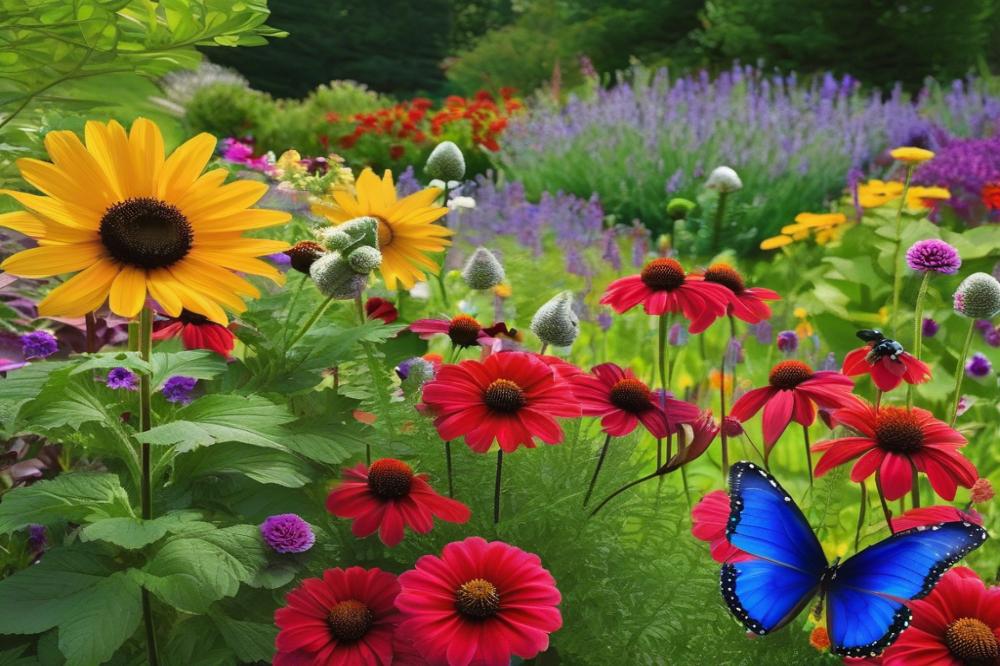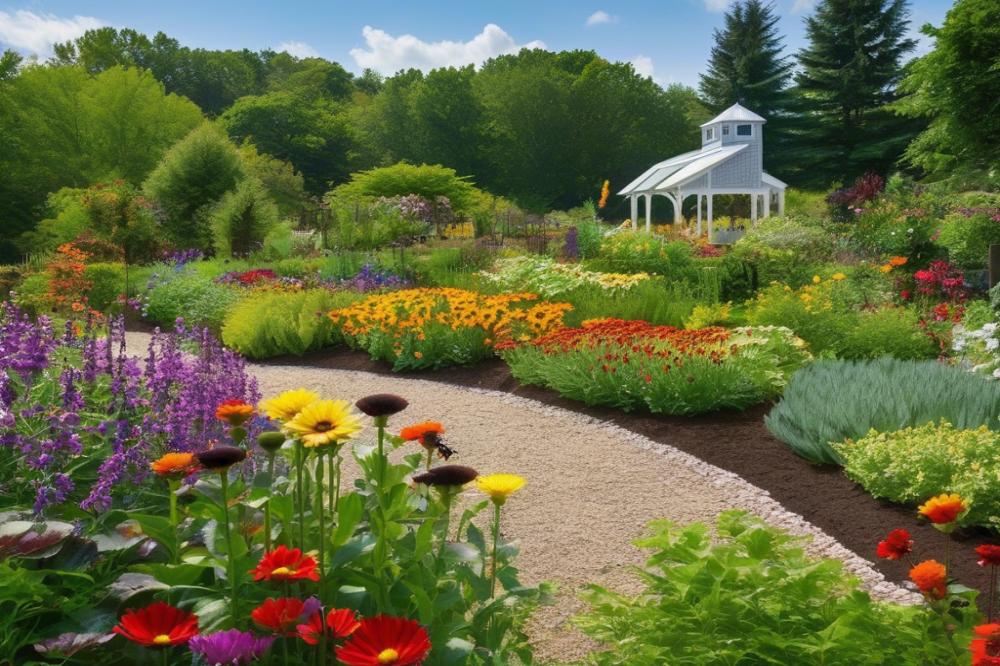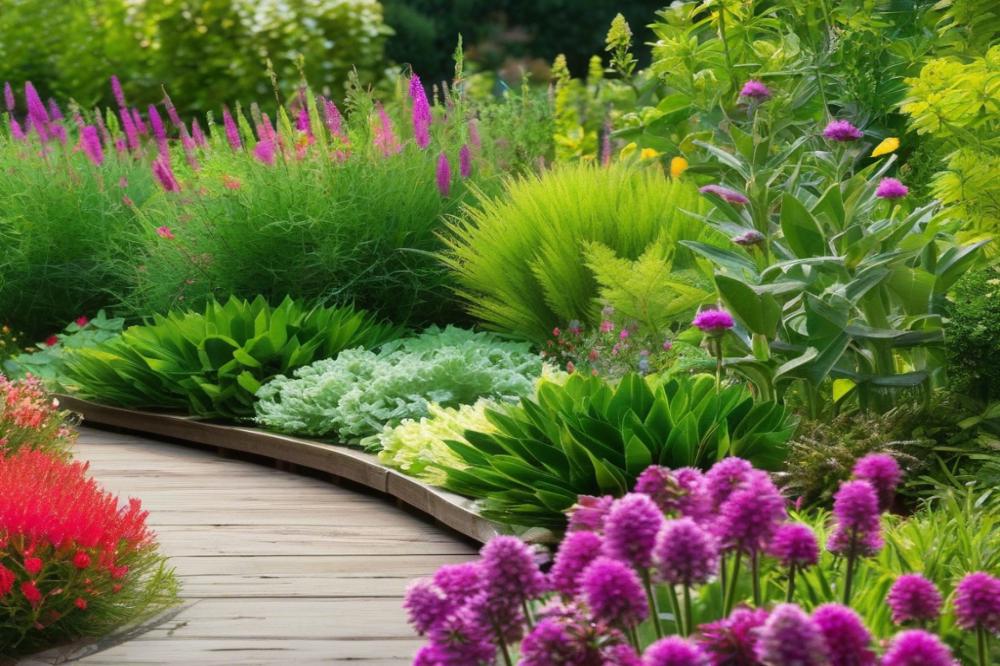The Benefits of Introducing beneficial insects to Your Garden
In the realm of organic gardening, a variety of tiny allies can make a significant difference. beneficial insects play a crucial role in maintaining garden health. They contribute to natural pest management, providing an alternative to synthetic chemicals. Ladybugs, lacewings, and bees are just a few examples of these valuable helpers. These creatures not only assist in pest control but also enhance the biodiversity of your green space.
Sustainable gardening practices are essential for achieving ecological balance. By prioritizing methods that support the environment, gardeners can create vibrant ecosystems. Introducing beneficial insects helps to establish these systems naturally, promoting healthier plants and reducing reliance on harmful pesticides. Most importantly, this approach nurtures the land for future generations.
The relationship between beneficial insects and organic pesticides cannot be overlooked. While many gardeners seek to eliminate pests, it is vital to recognize the role of these insects. They can reduce pest populations naturally, offering a more balanced solution. pollinators like bees are equally important, as they help plants to reproduce and thrive. Embracing nature’s design is key to thriving gardens and a more resilient landscape.
Understanding Beneficial Insects


Beneficial insects play a vital role in gardening. They can be defined as insects that contribute positively to the ecosystem. This includes those that help with pollination, manage pests, or support biodiversity in other ways. Understanding their classification helps gardeners make better choices.
Types of Beneficial Insects
Insects can be categorized into three main types: pollinators, predators, and parasitoids. Pollinators, like bees and butterflies, are essential for transferring pollen from one flower to another. This process helps plants reproduce, leading to better fruit and vegetable yields. Predators and parasitoids assist in pest control by feeding on harmful insects. Predators often consume pests directly, while parasitoids lay eggs inside or on the bodies of the pests, eventually leading to their demise.
For many gardeners, recognizing beneficial species is crucial. Ladybugs are among the most well-known natural pest controllers. They feast on aphids, whiteflies, and other destructive pests, making them a gardener’s ally. Lacewings are another effective predator. Their larvae are voracious eaters of pests, further supporting organic gardening practices. By attracting these insects, you can create a more sustainable gardening environment.
Importance of Biodiversity
Every insect contributes to ecological balance. Enhancing your garden’s biodiversity can lead to healthier plants and a more vibrant ecosystem. The presence of diverse insect species can control pest populations naturally, reducing the need for chemical pesticides. This approach aligns perfectly with the principles of organic gardening.
Incorporating these beneficial creatures into your gardening routine will yield greater rewards. This practice supports natural pest management and promotes a thriving garden. By learning to appreciate the role of ladybugs, lacewings, and other beneficial insects, you invest in the longevity and health of your garden.
The Role of Beneficial Insects in Pest Control


When it comes to managing pests in gardens, many gardeners are turning to natural pest management strategies. Conventional methods often rely on chemical pesticides, which can harm not just unwanted insects, but also beneficial ones. By fostering a diverse ecosystem, gardeners can invite nature’s allies to help with pest control.
Natural Pest Management Strategies
Natural pest management focuses on using the existing environment to deter pests. Introducing certain insects can create an ecological balance that helps prevent outbreaks. For instance, ladybugs and lacewings are famous for their appetite for aphids, a common garden pest. These natural predators help keep the pest population in check without the need for harsh chemicals.
Reducing the Need for Chemical Pesticides
When gardens are teeming with life, the reliance on chemical pesticides diminishes. Pollinators, such as bees, enhance biodiversity by supporting plant health. A thriving garden ecosystem attracts beneficial insects, which, in turn, suppress pest populations. Organic gardening practices often encourage this approach, leading to healthier soil and plants. This holistic method can result in fewer pests and healthier harvests.
Case Studies of Effective Pest Control Through Beneficial Insects
Numerous studies illustrate the success of beneficial insects in managing pests. In one memorable case, a California farmer introduced ladybugs into a greenhouse to combat a stubborn aphid problem. After a few weeks, the aphid population significantly dropped. Many gardeners reported similar success stories when using lacewings to control caterpillars and other pests.
These examples underscore the value of integrating natural solutions into garden care. Shifting focus to a more sustainable gardening strategy proves beneficial in the long run. Creating habitats for beneficial insects can lead to higher productivity and less dependence on chemical treatments.
Enhancing Biodiversity in Your Garden


Biodiversity plays a crucial role in maintaining a healthy ecosystem. A variety of species contributes to ecological balance. The more diverse a garden, the better it can withstand pests and diseases. Healthy ecosystems are more resilient and thrive when a mix of plant and animal life exists. This is where the importance of diverse organisms comes into play.
Insect life is vital for promoting biodiversity within your garden. These small creatures, such as bees and ladybugs, serve multiple functions. Primarily, they aid in pollination, ensuring that plants can reproduce. They also establish natural pest management by preying on harmful insects. Lacewings, for instance, are excellent at keeping pest populations in check.
Attracting beneficial insect species fosters a more vibrant garden environment. Planting flowers that provide nectar is one effective strategy. Such plants lure in essential pollinators, encouraging both plant growth and food production. Additionally, maintaining a suitable habitat helps create a space where beneficial insects can thrive. Organic gardening methods that avoid harsh chemicals will further support these creatures.
Supporting a wide range of insects enhances overall garden health. Promoting biodiversity leads to more robust plants and a better harvest. Gardens rich in various species naturally minimize their need for pesticides, which aligns with sustainable gardening practices. Ultimately, incorporating beneficial insects is a proactive step toward creating a thriving ecosystem.
Promoting Pollinators in Your Garden


Pollinators play a critical role in our ecosystems. Among them, bees stand out as one of the most significant. They help plants reproduce by transferring pollen, which is essential for fruit and seed production. Without these hardworking insects, many of the foods we enjoy could disappear. Thus, it makes sense to promote their presence in our gardens.
The Significance of Pollinators, Especially Bees
Bees contribute to around one-third of the food we consume. This includes fruits, vegetables, and nuts. They are vital to maintaining biodiversity within our ecosystems. A decline in pollinator populations could lead to an imbalance in nature, affecting plants and animals alike. Protecting these creatures should be a priority for all gardeners.
Strategies to Attract and Maintain Pollinator Populations
Attracting pollinators to your garden requires thoughtful planning. Start by planting flowers that bloom at different times throughout the year. This provides food sources from early spring to late fall. Include native plants in your garden, as these tend to attract local pollinators more effectively. Avoiding pesticides is crucial for keeping these beneficial insects safe. Healthy gardens promote natural pest management; this means welcoming ladybugs and lacewings alongside your flowers.
The Role of Diverse Plants in Supporting Pollinator Health
Diversity in plant life can greatly improve pollinator health. Different species attract various insects, promoting a richer ecosystem. To create a vibrant garden, consider including a mix of colors, shapes, and scents. A garden filled with diverse plants not only attracts bees but also supports other critters, enhancing overall biodiversity. Sustainable gardening practices encourage a thriving environment for all forms of life.
Creating a Beneficial Insect-Friendly Garden
Introducing a variety of insects to your outdoor space can offer many advantages. These small creatures play a vital role in pest control and pollination. By improving biodiversity, they help create a healthier garden. Starting with a few practical steps can make a big difference.
Practical Steps for Introducing Beneficial Insects
One effective way to begin is by planting a range of flowers. Bright blooms attract pollinators like bees and butterflies. Selecting native plants is also beneficial, as they often support local insect populations. Additionally, providing water sources can invite more wildlife into your garden. Small birdbaths or shallow dishes can do the trick.
Consider introducing insects like ladybugs and lacewings. These species can help in natural pest management. You might buy them from a garden center or encourage them by providing the right habitat. If you avoid using chemical pesticides, beneficial insects will thrive. They prefer a control approach that respects their environment.
Best Practices for Maintaining Ecological Balance
Maintaining ecological balance is essential for a flourishing garden. Regularly inspect plants for any signs of harmful pests. Early detection is key for effective management. If pests appear, use non-toxic methods to resolve the issue. This helps protect the insect community you’re fostering.
Keep your garden diverse. Different plants attract various insects, creating a more resilient ecosystem. Rotating crops also leads to healthier soil and reduces pest populations. Insects thrive when they can find their preferred food sources throughout the growing season.
Companion Planting and Habitat Creation for Beneficial Insects
Companion planting is a technique worth exploring. Certain plants can naturally repel pests while attracting beneficial species. For example, marigolds can deter nematodes, while herbs like mint and basil help draw in pollinators. Creating layers in your garden can offer diverse habitats. Taller plants provide shelter for smaller ones, keeping the ecosystem balanced.
Leaving some areas of your garden a bit wild can be helpful. Piles of leaves or rocks can serve as homes for various insects. This approach promotes a habitat that supports a variety of species. The more wildlife you have, the better your chances of maintaining natural pest control.
Final Thoughts on Beneficial Insects in Your Garden
Introducing beneficial insects to your garden brings numerous advantages. They contribute to natural pest control, reducing the need for chemical solutions. These tiny helpers can manage pest populations effectively, allowing plants to thrive without constant intervention. Furthermore, they often assist with pollination, which enhances the growth of many flowers and vegetables.
Adopting practices that nurture these creatures can transform your gardening experience. Simple steps like planting native flowers, providing water sources, and avoiding harmful pesticides go a long way. Creating habitats for these insects also encourages them to establish a home in your garden, promoting long-term health and stability. Your garden becomes a lively ecosystem where beneficial species can flourish.
Looking ahead, the long-term effects of fostering ecological balance cannot be overstated. Healthy gardens will yield better crops and resist diseases more effectively. Sustainable gardening practices not only benefit individual gardeners but also the environment as a whole. By welcoming these tiny allies, you support a thriving system that lasts for years to come.
In conclusion, introducing these insects is more than just a garden strategy; it is a pathway to a healthier planet. Embrace these methods and experience the rewards of a vibrant, sustainable garden.



